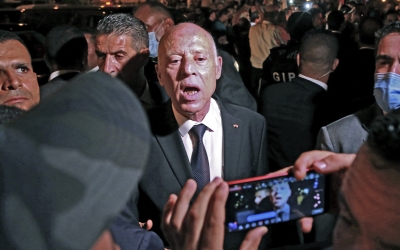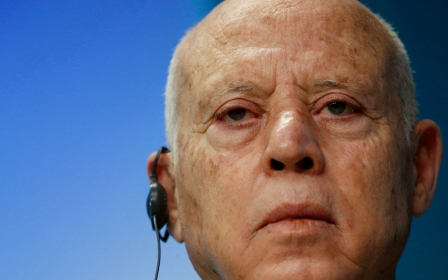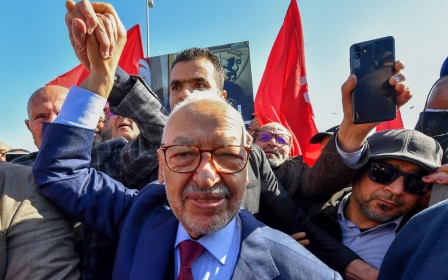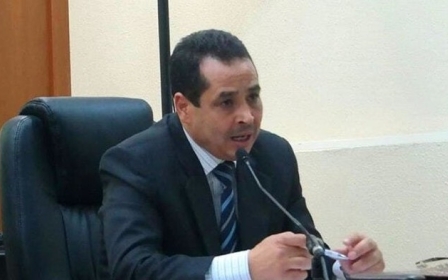African Union condemns ‘racial statements’ from Tunisian president
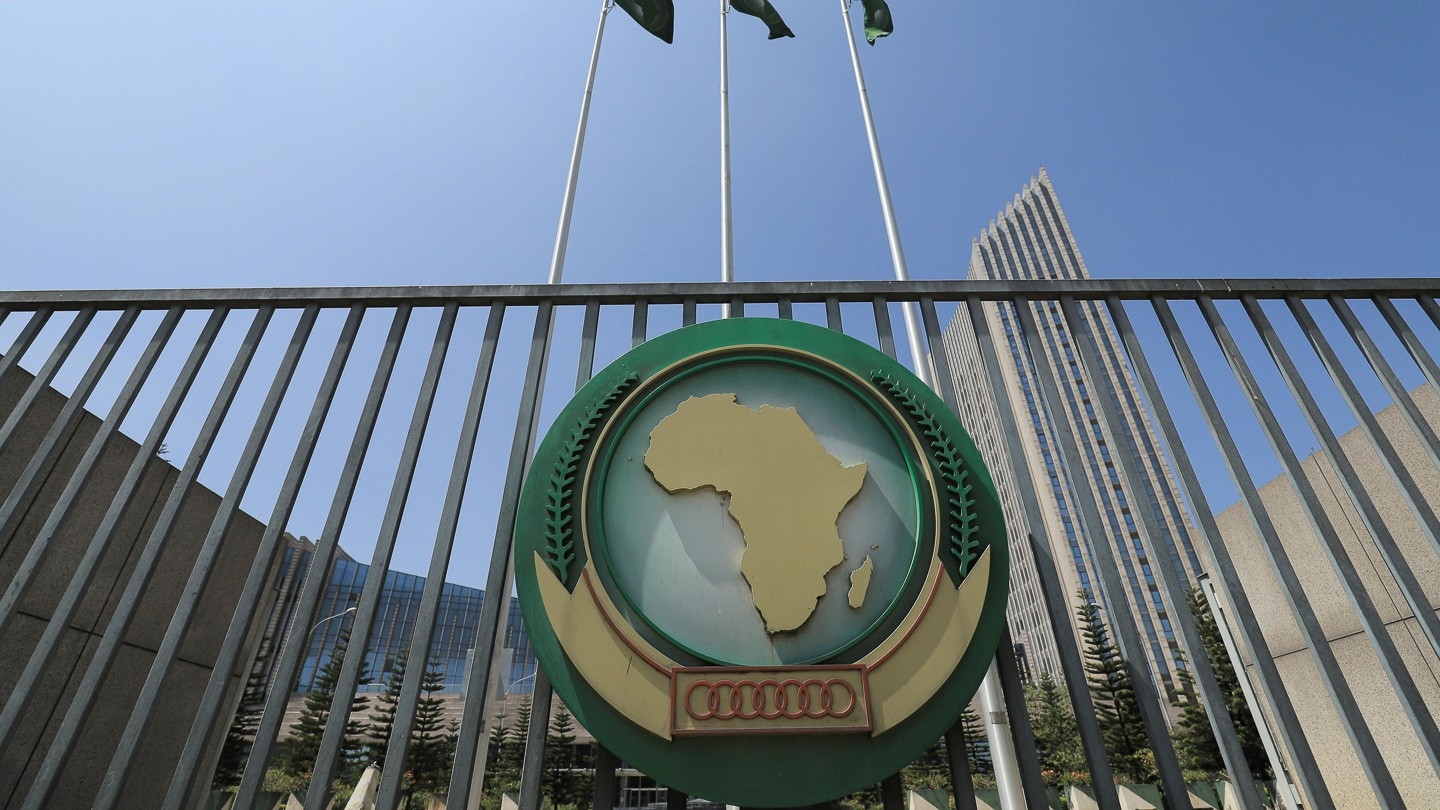
The African Union on Saturday condemned comments by the Tunisian President Kais Saied suggesting people from sub-Saharan Africa in the country were linked to criminality.
In a statement on Twitter, the African Union (AU) said it “strongly condemns the racial statements on fellow Africans in Tunisia”, without directly referring to Saied.
The Chairperson of the African Union Commission, Moussa Faki Mahmat, added that it “strongly condemns the shocking statement issued by Tunisian authorities targeting fellow Africans, which goes against the letter and spirit of our Organisation and founding principles”.
In a speech on Tuesday, Saied said that “there has been a criminal plan since the beginning of the century to change the demographic structure of Tunisia and there are parties that received large sums of money after 2011 for the settlement of illegal immigrants from sub-Saharan Africa.”
New MEE newsletter: Jerusalem Dispatch
Sign up to get the latest insights and analysis on Israel-Palestine, alongside Turkey Unpacked and other MEE newsletters
The president didn’t make clear who exactly was behind the alleged conspiracy. However, his comments were condemned by human rights campaigners who worry that they will exacerbate anti-immigrant rhetoric.
"The undeclared goal of the successive waves of illegal immigration is to consider Tunisia a purely African country that has no affiliation to the Arab and Islamic nations," added Saied.
AU representatives spoke with the Tunisian ambassador to the organisation for urgent consultation to express their “deep shock and concern at the form and substance of the statement targeting fellow Africans, notwithstanding their legal status in the country".
“The Chairperson reminds all countries, particularly African Union Member States, to honour their obligations under international law and relevant African Union instruments to treat all migrants with dignity, wherever they come from, refrain from racialised hate speech that could bring people to harm, and prioritise their safety and human rights,” the statement added.
In recent years, Tunisia has been a key transit hub for people from other African countries crossing the Mediterranean to enter Europe.
‘Systemic campaign’
Last Saturday, the Association of African Students and Interns in Tunisia released a statement denouncing a "systemic campaign of control and arrests" by security forces targeting black immigrants.
In recent months, the little-known Tunisian Nationalist Party has used social media to spread a baseless conspiracy theory that outside forces were colluding to alter the demographics of Tunisia.
Several social media users likened Saied’s comment to the notion of "the great replacement", a conspiracy theory that white people in Europe are being usurped by foreigners, mainly from Africa and the Middle East.
"Kais Saied repeating racist grand replacement-type theories that so many Tunisians have been saying as passing comments for very long," said Shreya Parikh, a researcher on black and Arab identity.
Eric Zemmour, a far-right French political figure who ran for president last year, endorsed Saied’s comments.
"The Maghreb countries themselves are beginning to sound the alarm in the face of the surge in migration… Tunisia wants to take urgent measures to protect its people," Zemmour tweeted. "What are we waiting for to fight against the Great Replacement?"
Zemmour, who received seven percent of votes in the first round of the election, built his political offering around the conspiracy theory and anti-immigrant rhetoric.
Middle East Eye delivers independent and unrivalled coverage and analysis of the Middle East, North Africa and beyond. To learn more about republishing this content and the associated fees, please fill out this form. More about MEE can be found here.


